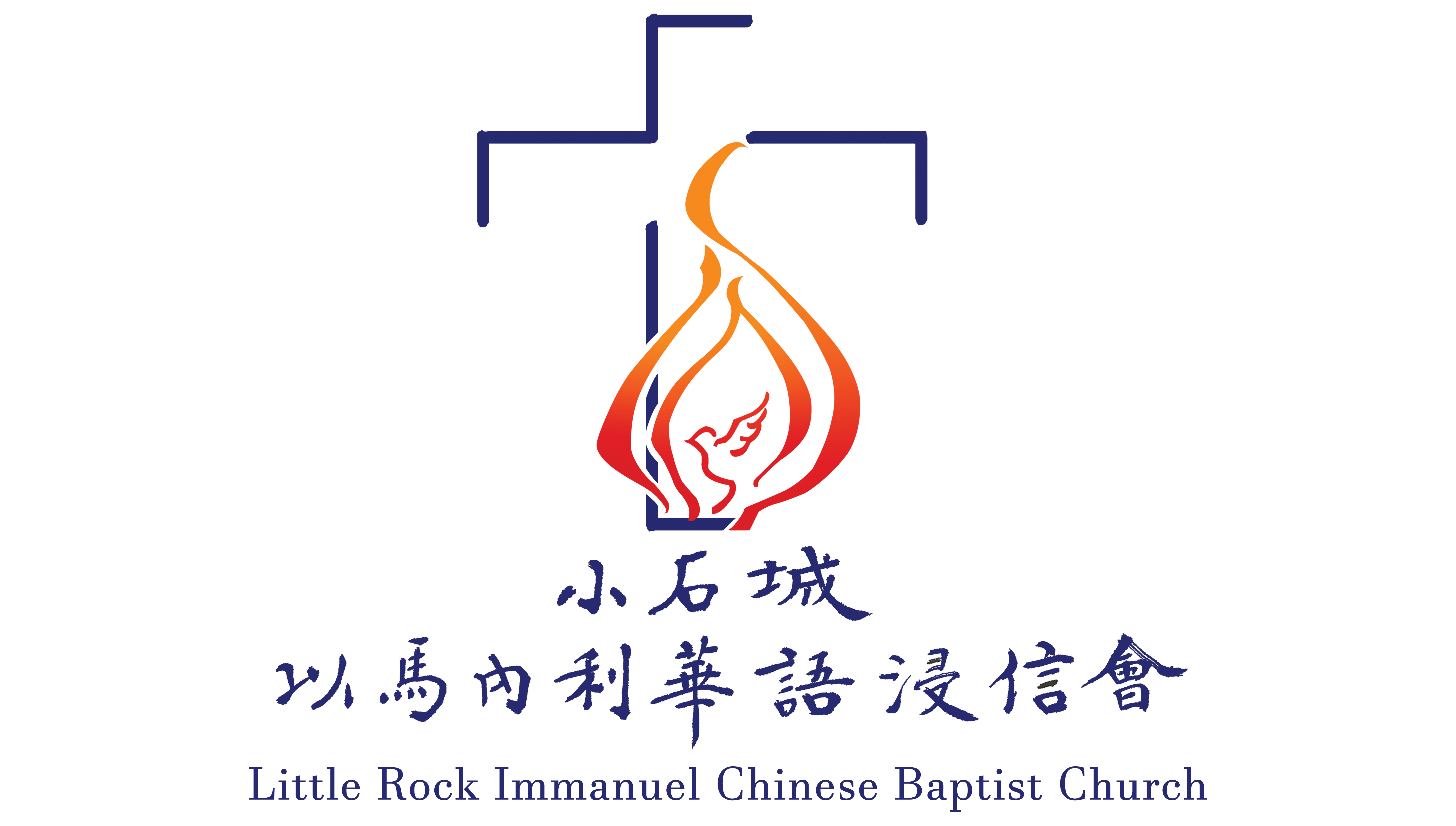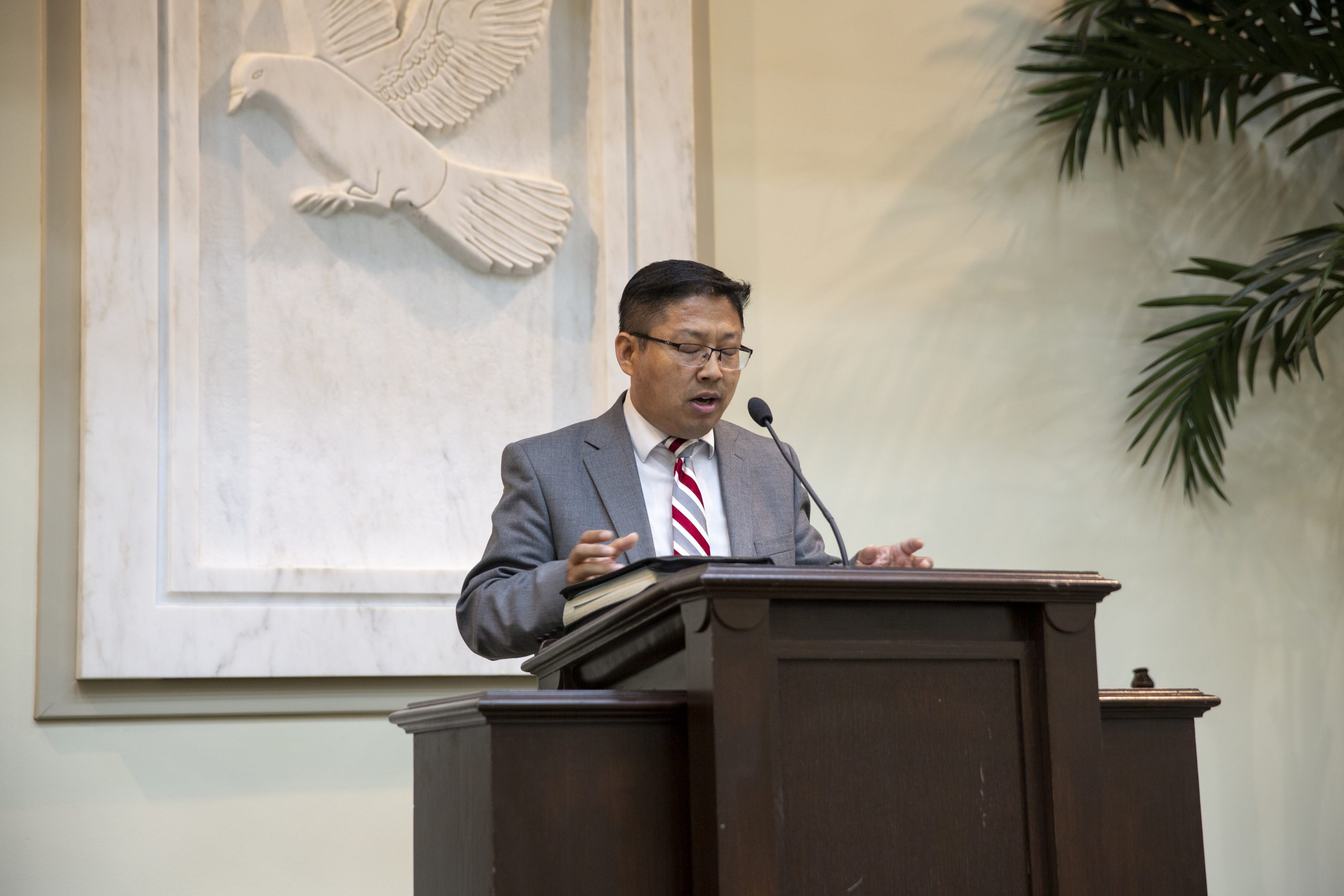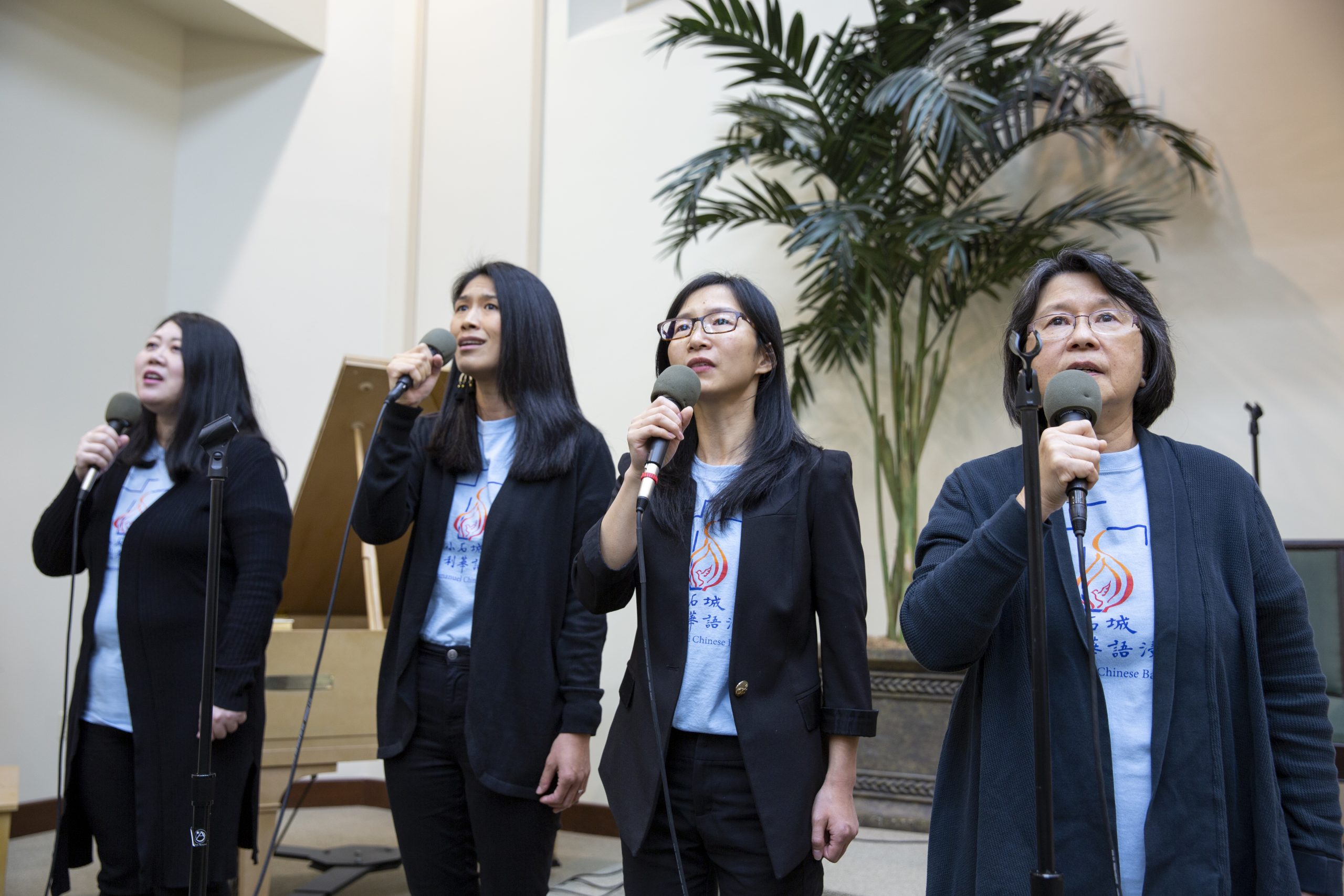亲爱的朋友,欢迎您浏览我们的网站。
“城造在山上,是不能隐藏的”(马太福音5:14下)。我们祈祷,求主使用小石城以马内利华语浸信会,使“这座造在山上的城”能“如日头出现、光辉烈烈”(士师记5:31),在新时代中为主发大光,照亮周围的人,使荣耀归于上帝。
我们诚挚地邀请您来参加我们教会的各项活动!让我们一同认识主,在祂的愛里彼此搀扶,共走天路。以马内利!
 李春海牧师
李春海牧师
最新信息
6/15/2025 父亲节牧者之言
天父的爱
杜嘉
“严父慈母”这是中国人再熟悉不过的对父母的描述。大多数中国人对父亲的印象都是严肃的,威严的,让人敬畏害怕的。心中无数次想奔向父亲的怀抱,好像奔向母亲的怀抱一样,但无数次都可能被一张无形的帐幕骤然阻挡,亲而不能相近,这是无数儿女心灵中难以释怀的创痛。
曾有一个中年妇人泪流满面地说着自己的故事:从有记忆开始,就完全没有被爸爸抱过的印象,爸爸近在眼前,却远在天边。直到有一次(都少年人了),她不小心踩了钉子,锥心之痛啊!这时,爸爸一手抱过她来,很焦急、很专注、很细心地清洗护理她的伤口。她感到无比幸福,希望钉子的伤口不要那么快痊愈,让爸爸可以再抱她一次……如果受伤能换取爸爸的关注和拥抱,她宁愿再次受伤!
这让人伤心的故事,多少都会在我们的心里引起共鸣。我们渴望父亲的爱,父亲的爱却不能完全满足我们心里的渴望。为什么呢?原来,父亲心里的渴望也没有被他的父亲完全满足啊!
可是,我们在天上的父亲,却能满足人类心灵深处一切的渴望!
“慈爱的天父”,这是基督徒每次祷告开头说的话,这是何等温暖亲切的称呼啊!原来,我们在天上有一位父亲,祂是慈爱的父亲,祂是伟大的父亲,祂是永远的父亲。
有人说,人的一生都在尽力取悦父亲,期望得着父亲的赞赏。但我们的天父却是天天巴望流浪在外的,破败不堪的儿子回家。圣经记载了一个浪子回家的故事,记载在路加福音第十五章。那个浪子拿了父亲的财产,离家出走,以为外面的世界很精彩,却发现外面的世界不但很无奈,而且很悲哀。于是,浪子怀着忐忑不安的心回家找父亲,想着,就算回家做父亲的雇工都很幸福。没想到,父亲一见到自己的儿子,二话不说,就张开怀抱,把这个心灵破碎的孩子紧紧地抱在怀里!连连地亲嘴(估计这浪子很久没有沐浴洗脸了,污秽臊臭);急急地把外袍披在孩子的身上,把戒指戴在孩子的手指上(这是尊贵身分的象征);快快地让仆人们预备丰盛的宴席,表达无比喜乐的心情,并让所有的人都一同高兴快乐!原来,我们不需要拼命地取悦天父,我们是天父的孩子,这就够了。神就是爱,天父本身就是爱,祂给予祂孩子们的,是完全的爱,是能够满足孩子们心灵一切需要的爱。
有人把父亲比作家里的银行,他负责养家糊口,培养孩子。有一首诗歌叫〈这是天父世界〉,歌词说到:“这是天父世界,我心满有安宁,树木花草,苍天碧海,述说天父全能。这是天父世界,小鸟长翅飞鸣,清晨明亮好花美丽,证明天理精深……”天父上帝是世界的创造主,天地万物都是祂的,祂毫不吝啬地都赐给我们了,并且在其中教导我们:野地的花,无比艳丽,那是天父给他们披上的彩衣,何况我们呢?不必为衣裳忧虑;天上的飞鸟,不种不收,天父上帝尚且养活他们,何况我们呢?不必为食物忧虑。天父上帝养活我们,并且赐给我们富足又不加上忧虑的福分。
这么伟大的天父上帝,对祂的孩子们却是无比的温柔慈爱,祂曾如此说:“你们要从中享受〔从中享受原文是咂〕;你们必蒙抱在肋旁,摇弄在膝上。母亲怎样安慰儿子,我就照样安慰你们。”(圣经以赛亚书66:12-13)咂?咂!这是亲嘴发出来的声音吧?抱在肋旁,摇弄在膝上,这是在逗乐吧?母亲怎样安慰儿子?足够的温柔细腻吧?这幅图画,温馨得令全人类都震惊了!
“慈爱的天父……”能够如此呼唤上帝的人有福了,因为他们必称为天父的孩子。
(引自金灯台活页刊第237期 2025年5月)
The Father’s Love
By Du Jia
“Strict father, gentle mother”—this is a description of parents that Chinese people are all too familiar with. Most Chinese associate fathers with seriousness, authority, and a sense of awe or fear. Countless times, children may long to run into their father’s arms just as they would their mother’s, but an invisible curtain often suddenly stops them. Close, yet unreachable—this is a lingering pain buried deep in the hearts of many sons and daughters.
There was once a middle-aged woman who tearfully told her story: ever since she could remember, she had no memory of being embraced by her father. Her father was physically near but emotionally distant. Until one time—as a teenager—she accidentally stepped on a nail. The pain was excruciating! Her father immediately scooped her up in his arms, anxiously, attentively, and carefully cleaning and treating her wound. She felt an overwhelming sense of happiness and secretly wished that the wound wouldn’t heal so quickly—so that her father might hold her just once more. If getting hurt could win her father’s attention and embrace, she would rather be hurt again!
This heartbreaking story resonates with many of us. We long for a father’s love, yet find it unable to fully satisfy the deep hunger of our hearts. Why? Because our fathers themselves never fully received the love they needed from their own fathers.
But our Heavenly Father—He alone can satisfy the deepest longings of the human soul!
“Loving Heavenly Father”—this is how Christians often begin their prayers. What a warm and tender address! It turns out we have a Father in heaven—He is a loving Father, a great Father, and an everlasting Father.
Someone once said, a person spends their whole life trying to win their father’s approval, hoping to gain his affirmation. But our Heavenly Father is the one who is daily longing for His wandering, broken children to come home. The Bible tells the story of the prodigal son in Luke 15. The son took his father’s inheritance and ran off, thinking the world outside was exciting. But he soon found it disappointing, even miserable. So the prodigal returned home with a heart full of fear and uncertainty, thinking, “Even if I can only be my father’s hired servant, it would be enough.” But as soon as the father saw him, he ran toward him, wrapped him in a warm embrace, and kissed him repeatedly (even though the son hadn’t likely bathed in a long time and probably smelled awful). The father hurried to put the best robe on him, a ring on his finger (a sign of honor and sonship), and ordered a feast to celebrate, calling everyone to rejoice together!
It turns out, we don’t need to try hard to please the Heavenly Father. We are His children—that’s enough. God is love. The Father Himself is love. What He gives His children is perfect love—love that fully satisfies every need of the human heart.
Some people compare a father to the “bank of the household,” responsible for providing and educating. There’s a hymn called This Is My Father’s World. One stanza goes:
This is my Father’s world; Oh, let me ne’er forget,
That though the wrong seems oft so strong, God is the ruler yet.
This is my Father’s world: The birds their carols raise,
The morning light, the lily white, declare their Maker’s praise…
God the Father is the Creator of the world—everything in heaven and earth belongs to Him, and He generously gives it to us. Through all of it, He teaches us: the flowers of the field are arrayed in splendor—God clothes them. How much more will He care for us? We need not worry about clothing. The birds of the air neither sow nor reap, yet the Father feeds them—how much more will He provide for us? We need not worry about food. God our Father provides for us and grants us blessings that are abundant and free from sorrow.
Such a great Heavenly Father deals with His children with immeasurable tenderness and love. He once said,
“You will nurse and be carried on her arm and dandled on her knees.
As a mother comforts her child, so will I comfort you.”
(Isaiah 66:12–13)
“Nurse”? The original Hebrew word suggests the sound of a kiss. To be carried on the hip, to be bounced on the knees—this is playful joy! “As a mother comforts her child”—such gentle intimacy! This picture is so warm and tender it astonishes all humanity.
“Loving Heavenly Father…” How blessed are those who can call God by this name, for they shall be called children of the Father.
(From Golden Lampstand Leaflet, Issue 237, May 2025)
6/8/25 牧者之言
操练感恩三
阅读经文:腓立比书 1:3-4,民数记 6:24-26
当你开始说话时,父母可能就教你说“谢谢”。
父母教导孩子这基本礼貌并不令人意外。因为表达感恩,会让关系更加稳固。一句发自内心的“谢谢”不仅能让他人感到被欣赏,也提醒我们彼此之间是互相依赖的。
“谢谢”不是你离开童年后就不再需要表达的词语。
腓立比书的作者为我们树立了榜样:“我每逢想念你们,就感谢我的神;每逢为你们众人祈求的时候,常是欢欢喜喜地祈求。”(腓立比书 1:3-4)
在旧约中,人们彼此祝福来表达感恩。圣经中最著名的祝福之一是:“愿耶和华赐福给你,保护你;愿耶和华使祂的脸光照你,赐恩给你。”(民数记 6:24-25)
当你向别人表达感恩,就如同神的脸光照你们二人。一句真诚的“谢谢”能彰显对方的美善,并使其流露出来。
操练:
今天向三个人说“谢谢”——可以是熟人,也可以是偶然遇见的人。
具体表达感恩。指出对方做得好的地方,以及你看到的美善。例如:“谢谢你这么快回复我的邮件。我注意到你很用心工作,透过工作你真正在爱身边的人。”
记录别人对你真诚感谢的反应。他听到“谢谢”时,脸上有什么变化?你表达感恩后感觉如何?
一天结束时,反思你的感恩操练。
祷告:
神啊,感谢祢赐给我生命中的这些人。求祢赐福给他们。感谢他们给予我的各样祝福,帮助我说“谢谢”。奉耶稣的名,阿们。
引自:https://zh-hant.theologyofwork.org/devotions/practicing-gratitude
Practicing Gratitude, Part 3
Scripture Reading: Philippians 1:3-4, Number 6:24-26
As soon as you started to talk, your parents probably taught you to say, “thank you.”
It’s no surprise that parents teach children this basic rule. Relationships grow stronger when you express gratitude. A heartfelt “thank you” makes other people feel appreciated. And it reminds you of your dependence upon other people.
Saying “thank you” isn’t something you grow out of when you leave childhood.
The writer of the letter to the Philippians modeled practicing gratitude for other people. “I thank my God every time I remember you, constantly praying with joy in every one of my prayers for all of you” (Philippians 1:3–4).
In the Old Testament, people express gratitude to one another by blessing them. One of the most famous biblical blessings reads, “The LORD bless you and keep you; the LORD make his face to shine upon you, and be gracious to you” (Numbers 6:24–25).
When you express your gratitude to someone else, it can be as if God is shining his face on both of you. A sincere “thank you” points out the good in another person and brings it to the surface.
Practice:
Say, “thank you” to three people today. It could be someone you know well, or someone you only meet in passing.
Use specifics. Point out exactly what the other person did and the good that you see in them. For example, you could say: “Thank you for responding so quickly to my email. I notice you put a lot of care into your work. You really love the people around you through your work.”
Make a note of how someone reacts to a genuine “thank you.” Did the person’s face change when they heard it? How did you feel after expressing your gratitude?
At the end of your day today, reflect on your gratitude experiment.
Prayer: God, thank you for the people in my life. Give them your blessing. Help me say “thank you” for the ways they bless me. In Jesus’ name, Amen.
Further Exploration: Read a personal story about expressing gratitude at work.
Quote:
Called To Work dcrandall-keeptouch.com@shared1.ccsend.com, Mon, Mar 3, 1:31 PM
6/1/25 牧者之言
操练感恩二
阅读经文:帖撒罗尼迦前书 5:18,约拿书 4:6
当你诸事顺利的时候,很容易察觉周围美好的事物。当你行事不顺,操练感恩就会更困难。
然而,这正是你最需要与神连接的时候。人生艰难时,你比任何时候都更需要神。
帖撒罗尼迦前书 5:18 说,基督向你所定的旨意是“凡事”谢恩。当你经历困难时,该如何谢恩呢?在你能感恩之前,可能要先向神倾诉你的伤痛和挫败。
耶稣自己也经历过苦难。如果你正在经历苦难,就从思想耶稣开始。然后求问神你可以为何感恩。
你可能会发现许多美好的事情跃入脑海。即使只是想到耶稣看顾和关爱你,也会令人鼓舞。
当先知约拿在服事中经历糟糕的一天,他从现实中看到了神的供应,并因此感恩。神安排一棵植物为他遮荫,“约拿因这棵蓖麻大大喜乐”(约拿书 4:6)。
操练:
思考你目前面临的困难。诚实地告诉神你的感受。分享每一个哀伤和埋怨。
问自己,在这个处境中有什么是我可以感恩的?
察觉自然环境中,有什么感觉像是来自神的礼物。
每当你感到不堪重负,求耶稣分担你的苦楚。然后问:有什么是我可以感恩的?神在这里成就什么美好的事?
祷告:
神啊,祢了解我的心。感谢祢聆听我的痛苦。帮助我凡事谢恩。
引自:https://zh-hant.theologyofwork.org/devotions/practicing-gratitude
Practicing Gratitude, Part 2
Scripture Reading: 1 Thessalonians 5:18, Jonah 4:6
It’s easy to notice the good around you when things are going well. It can be harder to practice gratitude when things go poorly.
And yet, that’s exactly when you need to connect with God. When life is tough, you need God more than ever.
1 Thessalonians 5:18 says that Christ’s will for you is to give thanks “in all circumstances.” How can you give thanks when things are hard? It may take venting your hurt or frustration to God before you can get to gratitude.
Jesus himself suffered. If you’re suffering, start there with Jesus. Then ask God what you can be grateful for.
You may find many good things springing to mind. Even the thought that Jesus sees you and cares for you can be encouraging.
When the prophet Jonah was having a terrible day at work, he found gratitude by looking at God’s provision through the physical environment. God made a bush for shade and “Jonah was very happy about the bush.” (Jonah 4:6).
Practice:
- Think about a current hardship you face. Tell God truthfully how you feel about it. Share every lament and complaint.
- Ask yourself: is there anything I can be grateful for in this circumstance?
- Notice anything in your natural environment that feels like a gift from God.
- Anytime you feel your shoulders sink today, ask Jesus to share in your suffering. Then ask: is there anything I can be grateful for? What has God done here that’s good?
Prayer: God, you know my heart. Thank you for hearing my suffering. Help me thank you in all circumstances.
Further Exploration: Read Ann Voskamp’s answer to the question: “How do I fully live when life is full of hurt?”
Quote: Called To Work <dcrandall-keeptouch.com@shared1.ccsend.com>,Mon, Feb 24, 2:41 PM
5/25/25 牧者之言
操练感恩一
| 阅读经文:创世记 1:12,马可福音 6:37-44 感恩是一种属灵操练,帮助你察觉并感谢神在日常生活中的作为。在这个计划中,你将学习 4 种不同的技巧,让感恩成为你日常生活的一部分。 感谢《工作神学项目》为我们提供这个计划。欲了解更多信息,请浏览:https://zh-hant.theologyofwork.org/ 灵修材料。 感恩是理解和赞美周围世界美好事物的一种属灵操练。这说来容易,做来却不容易。 现代生活常常迫使你专注于不好的事情——哪些需要立即修复,哪些危机必须预防,你现在需要什么新东西才能让生活变得更好。 学习察觉美好的一面需要操练。幸运的是,每当你展现感恩的心时,你就会变得更擅长。你会得到正面的反馈——心存感恩的感觉真好。而且这会让你与神连接,祂是一切良善的泉源。 你不需要寻找伟大的神迹奇事来感恩。耶稣示范感恩可以从很小的事情开始。那一天,当耶稣和祂的朋友们似乎没有足够的食物时,祂抬头望着天,感谢神赐给他们已有的食物(马可福音 6:37-44)。当耶稣这样做时,他们所拥有的一点点就变成了丰盛。 透过简单地察觉周围世界的美好事物,开始你的感恩操练。这可以追溯到圣经的第一章,神“看着”祂的创造是好的。 操练: 现在你周围的世界有什么是美好的?如果你坐的座位很舒服,感谢神。 在你的一天中,特别察觉一件美好的事。如果同事对你微笑,这可能是感恩的提醒。 今晚睡觉前,回想一下今天的经历。有些什么美好的事可以感谢神?列一个清单。 祷告: 神啊,感谢祢今日为我的生命带来益处。借着祢的良善显明祢自己。奉耶稣的名祷告,阿们。 引自:https://zh-hant.theologyofwork.org/devotions/practicing-gratitude |
PRACTICING GRATITUDE, PART ONEScripture Reading: Genesis 1:12, Mark 6:37-44 Gratitude is a spiritual practice that helps you notice and appreciate God’s work in your day to day. In this plan you’ll learn 4 different techniques for making gratitude a part of your daily life. We would like to thank the Theology of Work Project for providing this plan. For more information, please visit www.theologyofwork.org/devotions. Gratitude is a spiritual practice of seeing and celebrating the good in the world around you. This is easier said than done. Modern life often forces you to focus on what is bad – what needs to be fixed immediately, what crisis must be prevented, what new thing you need now to make your life better. Learning to notice the good takes practice. Thankfully, every time you flex your gratitude muscle you get stronger. You get positive feedback – it feels good to be grateful. And you connect with God who is the source of all goodness. You don’t need to look for big miraculous things to be grateful for. Jesus showed that gratitude can begin with very little. On a day when it seemed like he and his friends wouldn’t have enough to eat, Jesus looked up to heaven and thanked God for the food they had (Mark 6:37-44). When Jesus did this, the little they had turned into an abundance. Start your gratitude practice by simply noticing what is good in the world around you. This goes back to the very first chapter of the Bible, when God “sees” what is good in his creation (Genesis 1:12). Practice: What is good in the world around you right now? If the seat you’re sitting on is comfortable, thank God for that. During your day, make it a point to notice one thing that’s good. If a coworker smiles at you, this can be a prompt to gratitude. Before you go to bed tonight, think back on your day. What was good today that you can thank God for? Make a list. Prayer: God, thank you for the good you have put in my life today. Reveal yourself to me through your goodness. In Jesus’ name, Amen.” Further Exploration: Read the article From an Attitude of Ingratitude to Gratitude. Quote: Called To Work dcrandall-keeptouch.com@shared1.ccsend.com, Mon, Feb 17, 9:04 AM. |
历史归档
- December 2025 (1)
- November 2025 (5)
- October 2025 (4)
- September 2025 (4)
- August 2025 (4)
- July 2025 (4)
- June 2025 (4)
- May 2025 (5)
- April 2025 (5)
- March 2025 (5)
- February 2025 (4)
- January 2025 (4)
- December 2024 (5)
- November 2024 (5)
- October 2024 (4)
- September 2024 (4)
- August 2024 (5)
- July 2024 (4)
- June 2024 (5)
- May 2024 (4)
- April 2024 (4)
- March 2024 (7)
- February 2024 (5)
- January 2024 (4)
- December 2023 (8)
- November 2023 (10)
- October 2023 (6)
- September 2023 (4)
- August 2023 (5)
- July 2023 (6)
- June 2023 (6)
- May 2023 (4)
- April 2023 (13)
- March 2023 (4)
- February 2023 (4)
- January 2023 (7)
- December 2022 (14)
- November 2022 (4)
- October 2022 (2)
- September 2022 (8)
- August 2022 (5)
- July 2022 (6)
- June 2022 (7)
- May 2022 (5)
- April 2022 (12)
- March 2022 (6)
- February 2022 (5)
- January 2022 (8)
- December 2021 (8)
- November 2021 (4)
- October 2021 (3)
- January 2019 (1)





